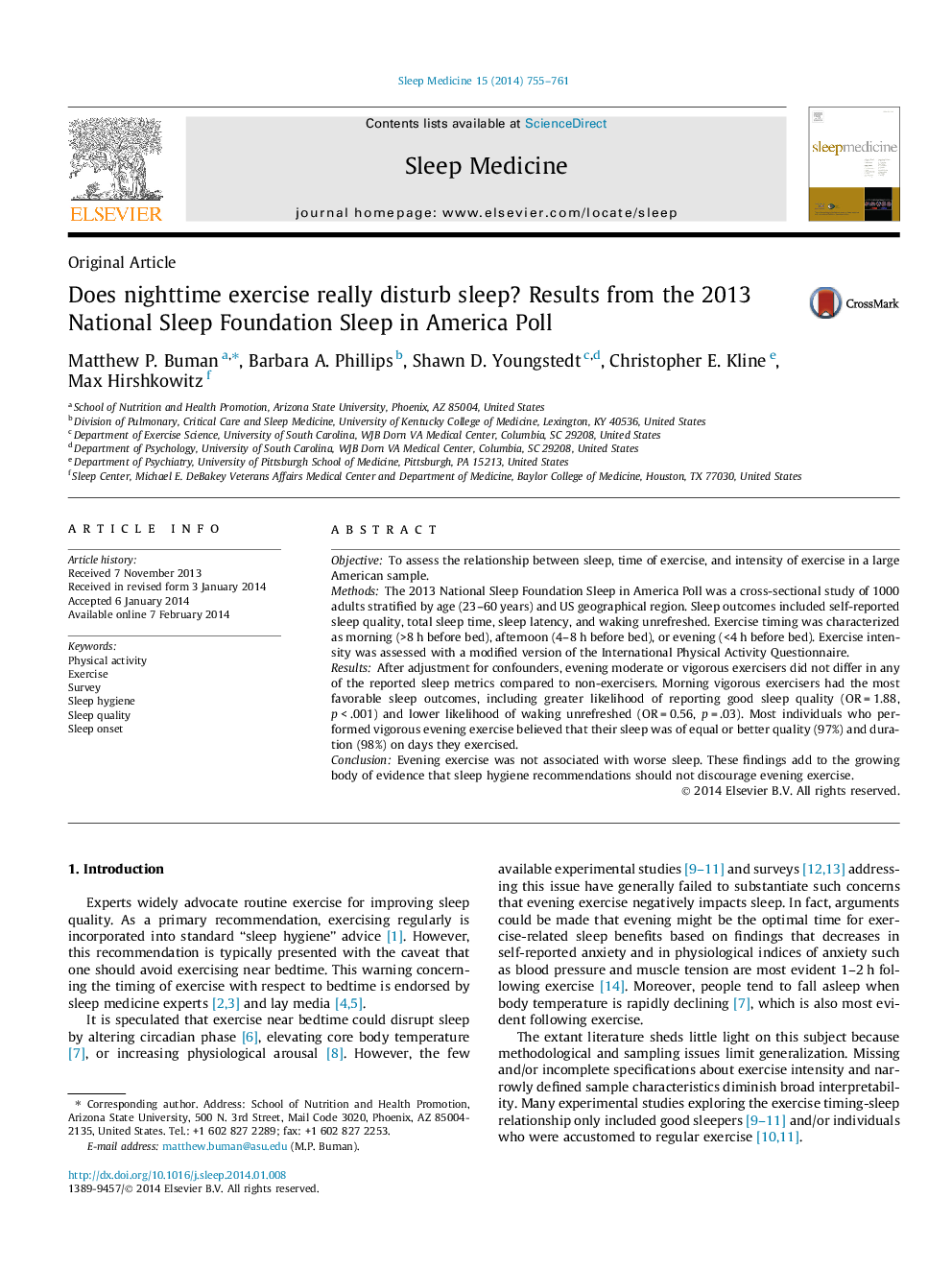| Article ID | Journal | Published Year | Pages | File Type |
|---|---|---|---|---|
| 3175886 | Sleep Medicine | 2014 | 7 Pages |
ObjectiveTo assess the relationship between sleep, time of exercise, and intensity of exercise in a large American sample.MethodsThe 2013 National Sleep Foundation Sleep in America Poll was a cross-sectional study of 1000 adults stratified by age (23–60 years) and US geographical region. Sleep outcomes included self-reported sleep quality, total sleep time, sleep latency, and waking unrefreshed. Exercise timing was characterized as morning (>8 h before bed), afternoon (4–8 h before bed), or evening (<4 h before bed). Exercise intensity was assessed with a modified version of the International Physical Activity Questionnaire.ResultsAfter adjustment for confounders, evening moderate or vigorous exercisers did not differ in any of the reported sleep metrics compared to non-exercisers. Morning vigorous exercisers had the most favorable sleep outcomes, including greater likelihood of reporting good sleep quality (OR = 1.88, p < .001) and lower likelihood of waking unrefreshed (OR = 0.56, p = .03). Most individuals who performed vigorous evening exercise believed that their sleep was of equal or better quality (97%) and duration (98%) on days they exercised.ConclusionEvening exercise was not associated with worse sleep. These findings add to the growing body of evidence that sleep hygiene recommendations should not discourage evening exercise.
